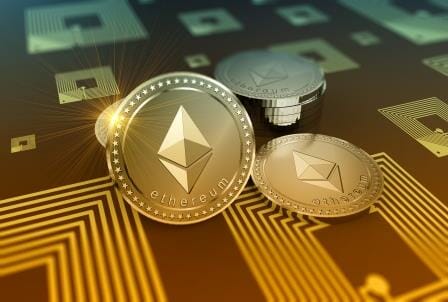The environment sure could use the help of each and every one of us, whether it is for raising awareness about pollution and its effects, promoting recycling, being more careful and thoughtful about waste management, or helping our community to clean up our beaches, streets, and surroundings. There is always a way to contribute.
That is what residents of Manila, the Philippines’ capital, will do, or at least one of the aforementioned options: it was announced this week that they will get paid in Ethereum for their contributions in cleaning the country’s polluted beaches in several locations.
The payment will be processed through a decentralized application (dApp) based on the Ethereum blockchain. The reward will be paid in ETH. According to Joseph Lubin, who is a co-founder of the Ethereum network and the CEO of ConsenSys – the most influential blockchain software development company in the planet, no less -, “in Manila, participants will be paid in ETH for spending a few hours cleaning up one of the most heavily polluted beaches in the world. Bounties Network and ConsenSys Impact are proving a new model where people fund causes directly without intermediaries.”
Speaking of the Bounties Network dApp, it is of paramount importance to state that it is a perfect way to allow users in the platform to create bounties and reward people who take part in projects with ETH tokens. In this case, the blockchain technology is applied successfully to create a mean to transparently provide compensations while using the public ledger.
Bounties for the Oceans
The project in Manila is part of a broader plan, developed from the ground by ConsenSys Impact in the chapter “Bounties for the Oceans: Philippines Pilot – Sustained, Verifiable Plastic Cleanups.”
As the program states, plastic pollution is one of the world’s most critical issues, one that threatens to affect the life and wellbeing of dozens of species in the ocean. “It, (Plastic pollution) costs the lives of 1 million seabirds and 100,000 marine mammals per year. Fish eat plastic, and we eat the fish. Plastic causes $8 billion in damage to marine ecosystems each year. With Bounties for the Ocean, we are asking people everywhere to submit verifiable proof of their direct plastic cleanup contribution as a way of fostering widespread and long-term behavioral shift. Do not depend on centralized organizations, go out there and do it yourselves,” it reads.
The project comes in handy as the country aims to protect and preserve Boracay, which is one of the nation’s most popular destinations for travelers looking for an option to dive and enjoy clear clean waters.
Why the Philippines?
One of the primary reasons why the Philippines were chosen as the country to try the initiative is because it has adopted Bitcoin as a mean of payment. In addition, the world’s most prominent cryptocurrency also has the backing of the central bank, which has recognized Bitcoin as a remittance method. Other digital assets, such as Ethereum, are also highly popular in the nation.
By Andres Chavez











